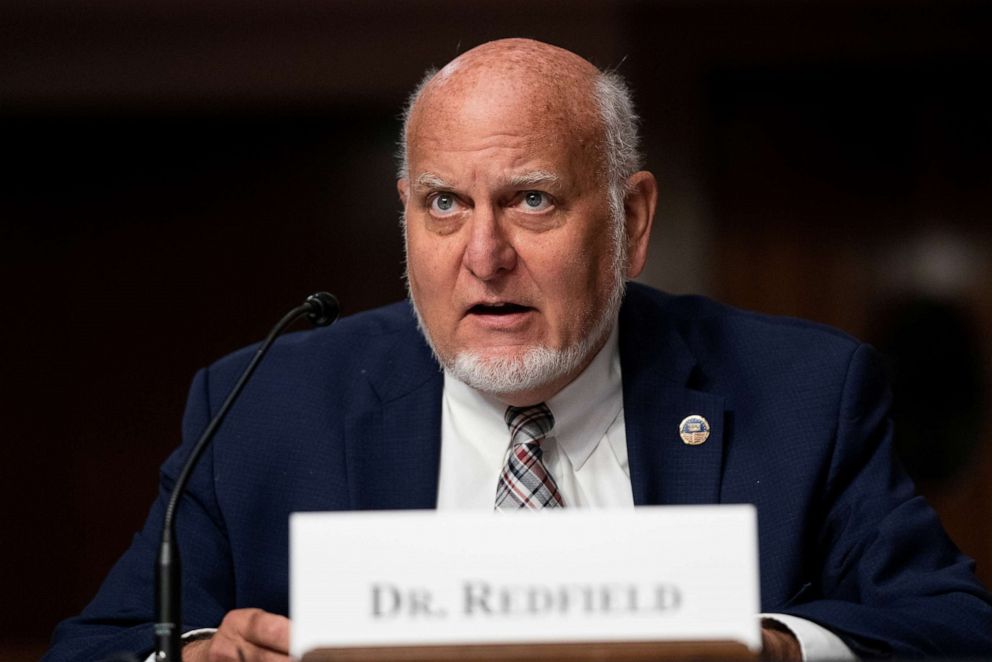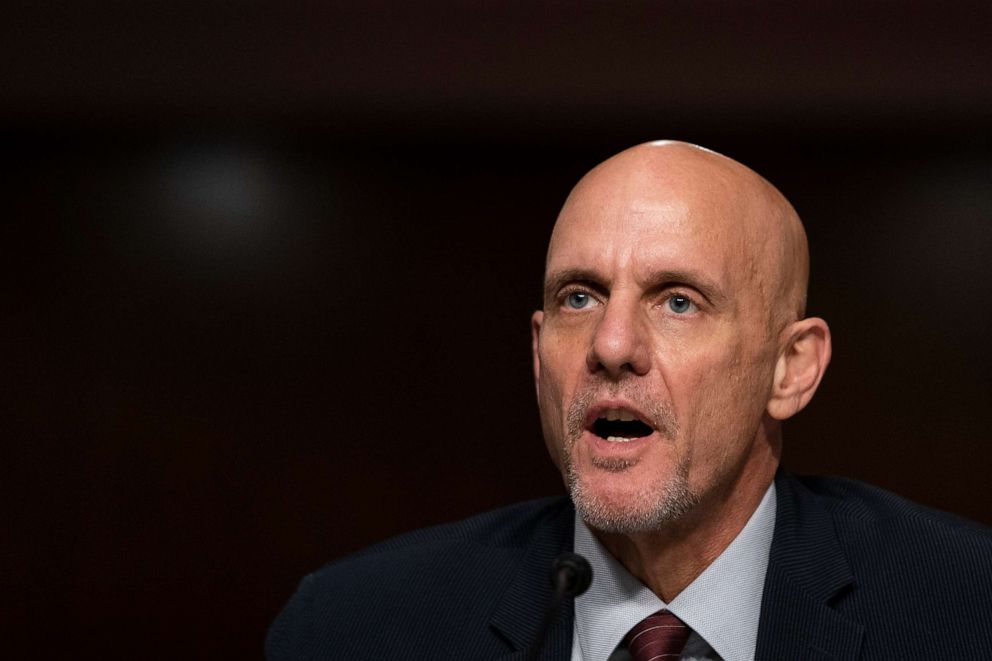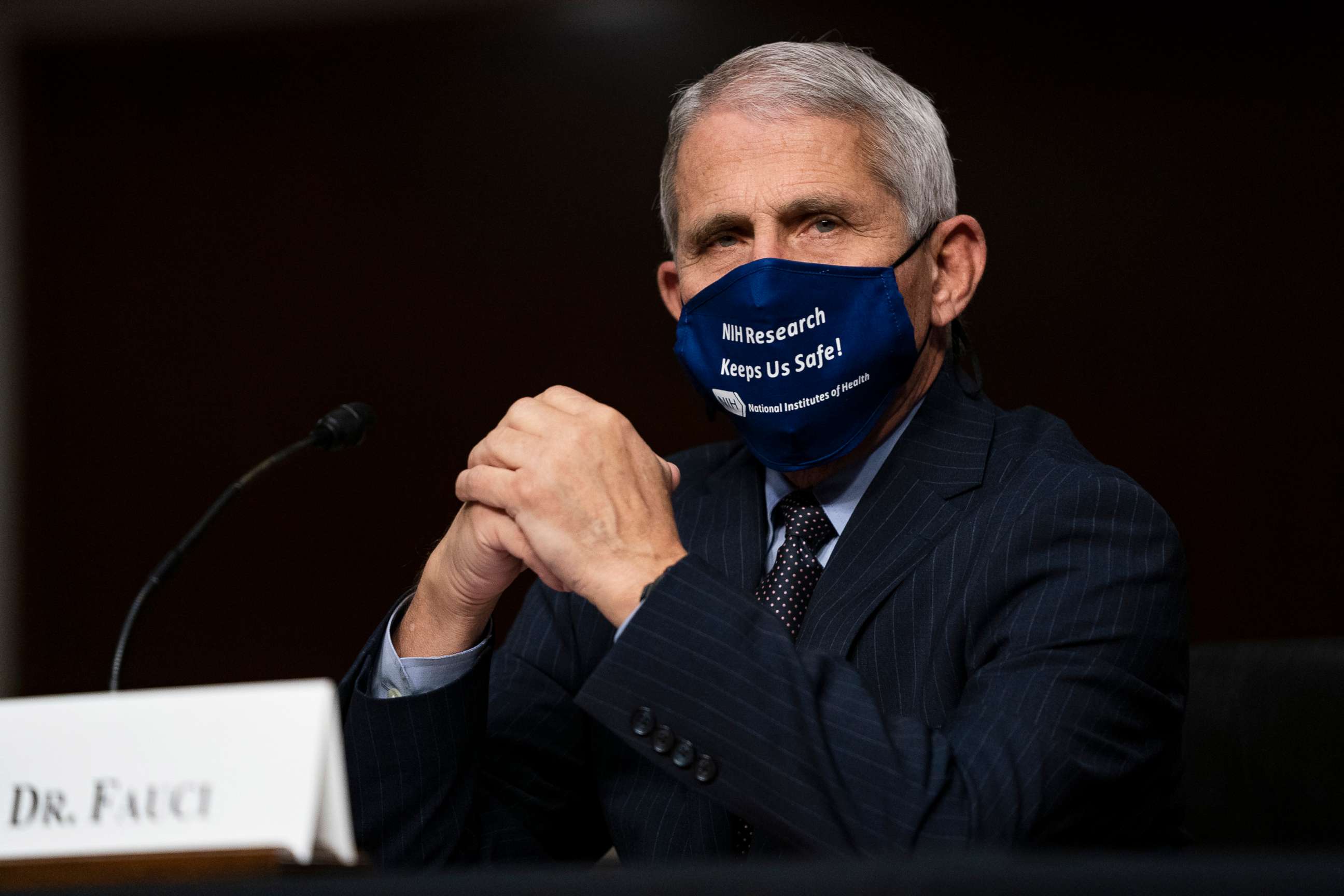CDC director, despite Trump criticism, sticks to timeline that most Americans to get vaccine by summer 2021
Trump previously said he thought Redfield was "incorrect."
Centers for Disease Control and Prevention Director Robert Redfield on Wednesday stood by his timeline for a potential COVID-19 vaccine, despite criticism from President Donald Trump who said the top public health official was mistaken when he said a vaccine would not be available to all Americans immediately later this fall.
Redfield and other officials, including Dr. Anthony Fauci, the nation's top infectious disease expert, have said that while "Operation Warp Speed" is facilitating the production of millions of doses of COVID-19 vaccines undergoing clinical trials, it will likely until next year for those doses to be distributed and available to the majority of Americans.

Trump has previously contradicted that view, repeatedly suggesting that a vaccine will be available to everyone as soon as it's authorized and potentially available as early as Election Day in early November.
Last week, Redfield said he expected it would take until summer of 2021 before enough Americans could be vaccinated and we could see a return to normal routines. Trump later said he thought Redfield was incorrect and made a mistake with that comment.
“When I was alluding to late second quarter, early third quarter [2021], I was alluding to how long I felt it would take to get those 700 million doses into the American public and complete the vaccine process,” he told the Senate Health Education, Labor and Pensions Committee during a hearing on Wednesday.
“I think that’s going to take us to April, May, June, possibly July to get the entire American public completely vaccinated. But we will have the 700 million doses based on projection by late March, early April.”
Redfield declined to comment on whether he faced political pushback for his earlier comments but says he's committed to sharing information that's supported by the data.
"I’m going to stay with my comment that I will continue to present science and data as I see it, and it’s not going to be modulated by whether individuals appreciate what I say or don’t appreciate what I say,” he said.
Trump has been criticized for comments that Democrats say put political pressure on the process of testing and authorizing a vaccine amid reports that political officials sought to interfere with reports or decisions at CDC or the FDA or accused career public health officials of scheming to work against the president.

But Redfield, Fauci, and officials like FDA Commissioner Steven Hahn insisted a vaccine will only be made available to the American public if the data shows it's safe and effective, and they said they have no hesitation about taking a vaccine that's authorized by FDA.
Redfield pushed back against criticism of CDC scientists from people who have compared them to the "deep state," calling the comments offensive and saying career officials are dedicated to protecting Americans' health.
"People don’t understand the ability to suck energy out of people working 24-7 when they get unfairly criticized or unfairly characterized,” he said.

Fauci testified Wednesday that the first rounds of vaccines will likely be prioritized to health care workers and people with pre-existing conditions that make them vulnerable to worse outcomes from COVID-19, if a vaccine is authorized by the FDA later this year.
"If you're talking about who's gonna get vaccinated in December or November, it is not going to be a large proportion of the population. It will be according to what we were discussing before. Namely those who are who are, according to the advisory committee on immunization practices getting the priority likely will be healthcare providers and likely will be those who are vulnerable with underlying conditions. I can't say that for certain. but if anything, is the past this prologue that likely will be the case," Fauci said in the hearing.
"But we're not gonna have all of the doses available, For example, by the end of December, they will be rolling in. As the months go by, and by the time you get to maybe the third or fourth month of the 2021, then you'll have doses for everyone."
Fauci also clarified millions of doses of all the viable vaccine candidates are being produced so that doesn't mean 700 million people would be able to be vaccinated by April, depending on doses how many of a specific vaccine that's authorized are available and if that vaccine consists of one shot or two. Four vaccines in the US have begun Phase 3 clinical trials.






